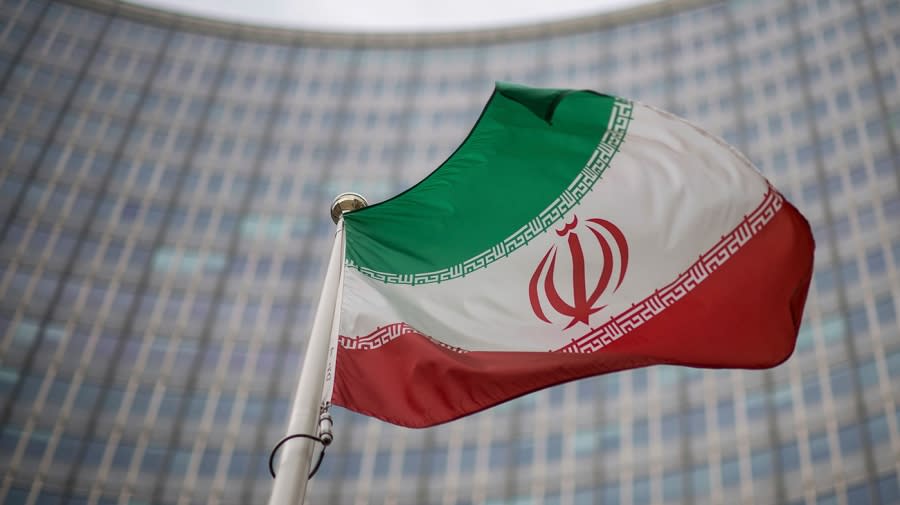While Tehran’s written response has not been disclosed to the public, the country’s chief negotiating adviser said that an agreement was closer than ever, but not yet done.
Iran has demanded assurances be put in place to ensure it receives compensation should any future United States administration abandon the nuclear deal once again, local media reported, as efforts to salvage the 2015 pact close in.
Talks between the US and Iran are currently being negotiated by Qatar and the European Union, with Qatar’s Deputy Foreign Minister Mohammed Al Khulaifi heading over to Tehran this weekend for meetings with Iran’s chief negotiator, Ali Bagheri Kani.
It comes after Iran delivered on Monday its response in writing to the EU on the latter’s latest draft regarding the revival of the landmark nuclear accord, calling on Washington to exercise more flexibility.
Tehran has neither accepted nor rejected the proposed nuclear pact, however it has raised several issues it wants addressed and incorporated into the deal.
The EU had said its proposal was the “final text” of a possible agreement when it delivered it, essentially announcing that negotiations came to a halt.
Integral to Tehran’s response are the guarantees it seeks that western companies investing in Iran would be protected should the US once again pull out of the nuclear deal, formally known as the Joint Comprehensive Plan of Action (JCPOA).
The Islamic Republic has made apparent its lack of faith in American officials in the past.
This view was further exacerbated when the US unilaterally abandoned the JCPOA in May 2018 under the Trump administration’s “maximum pressure” campaign on Tehran. In addition, Washington reimposed sanctions on the Islamic Republic.
Mohammad Marandi, an advisor to the Iranian negotiating team in Vienna said late June “we do not take US media statements as serious,” adding that “the Americans must provide the guarantees that Iran wants to make sure that they do not stab us in the back like in the past”.
“It seems there has been progress in bringing views closer, especially in the issue of indirect sanctions on Iranian companies working abroad,” a regional diplomat told CNN on Tuesday.
“The main issue facing the revival of the deal is the guarantees requested from the Iranian side ensuring Iran will be compensated in case future US administrations decide to withdraw again from the deal and while no real solution has been put forth,” he added.
Marandi also said the current negotiations are done in a bid to “prevent a repeat of the past”, saying: “After the JCPOA and during Obama’s presidency, senior European bankers came to Tehran. They told me that the US Treasury Department warned them and their banks not to work with Iran. A major violation of the deal”.
Reports said Iran allegedly also “floated mechanisms in the agreement that would allow Tehran to quickly increase its nuclear work if Washington quit the deal.”
“What is important for Iran is that there are assurances that if the United States suddenly leaves the deal again […] it comes at a price,” Marandi told the BBC on Tuesday.
A senior European official said Wednesday that Tehran and Washington need to “give a yes or no” on the draft proposal, disregarding the idea of reconvening talks between the relevant parties.
Speaking on the final deliverance of a nuclear accord, Marandi said on Tuesday: “It could be finished in the next couple days”.
Mikhail Ulyanov, Russia’s chief representative at the talks, tweeted on Wednesday that the final outcome of the negotiations is contingent on how Washington reacts to the latest Iranian “reasonable” suggestions.
The Islamic Republic said any final agreement should ensure the protection of the rights of the country and guarantee the lifting of crippling sanctions, which could eventually unfreeze tens of billions of dollars in oil and gas revenue, while also boost its economy.
Iran’s Foreign Minister Hossein Amirabdollahian said his country is ready to attain a conclusion through a foreign ministerial meeting and publicly declare the final deal if its views were accepted. “The upcoming days are important days,” he noted.
US State Department spokesman Ned Price told a briefing on Tuesday that the only way to restore the JCPOA is for Tehran to “abandon its extraneous demands,” adding that the US argues everything that can be negotiated “already has been”.
Iran “has not proposed any demand or text unrelated to the 2015 nuclear deal,” Reza Sadr al-Hosseini, an expert in West Asia affairs, told the Islamic Republic News Agency (IRNA) on Wednesday.
“Four main issues, including guarantees, sanctions, safeguards agreement and nuclear industry, were discussed in verbal or written forms” with representatives of the P4+1 group, namely Britain, France, China, Russia plus Germany.
Separately, the EU regards the Islamic Republic’s response to the “final text” as constructive, Bloomberg quoted an EU diplomat who is familiar with the matter as saying, adding that the comments are the first positive sign that the Iranian side might not “stall the negotiations much further”.







